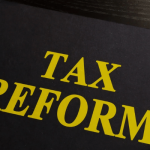Kenya’s Finance Bill 2025 has drawn criticism from startup and investment communities over proposed repeals of key tax incentives that have long supported the country’s entrepreneurial ecosystem. Among the most contentious changes is the planned removal of tax deferrals on Employee Share Ownership Plans (ESOPs)—a shift that could significantly alter how startups attract and retain talent.
Under current law, employees are allowed to defer taxes on stock options until they sell their shares. However, the new proposal would trigger taxation at the point of vesting, potentially forcing employees to pay tax on unrealized gains—shares they have not sold or profited from. This could impose a heavy financial burden and dampen enthusiasm for equity compensation in startups.
The bill also targets other major tax incentives that have spurred infrastructure and industrial development. These include the repeal of the 100% investment deduction for companies putting KES 250 million or more into projects outside Nairobi or Mombasa, or investing KES 1 billion cumulatively over three years in manufacturing or hotel infrastructure. This incentive has been especially beneficial in promoting investment in underserved regions.
Further, the Finance Bill proposes scrapping the preferential corporate tax rate of 15% for firms that build at least 100 residential housing units annually. This could weaken momentum behind the government’s affordable housing agenda, which relies heavily on private sector participation in large-scale residential construction.
These sweeping changes are part of the government’s broader push to expand its tax base and increase revenue collection amid rising fiscal pressures. While the Treasury positions the reforms as necessary for long-term sustainability, critics argue that the timing and scope of the proposals could do more harm than good.
Kenya has built a reputation as one of Africa’s most vibrant startup hubs, attracting significant venture capital and fostering a robust innovation culture. Stakeholders now worry that repealing these incentives may undermine the country’s competitive edge, driving both startups and investors to jurisdictions with more supportive regulatory environments.
The proposals have sparked debate about how best to balance revenue generation with economic growth, with many calling on lawmakers to reconsider the bill’s impact on entrepreneurship, innovation, and long-term investment.










